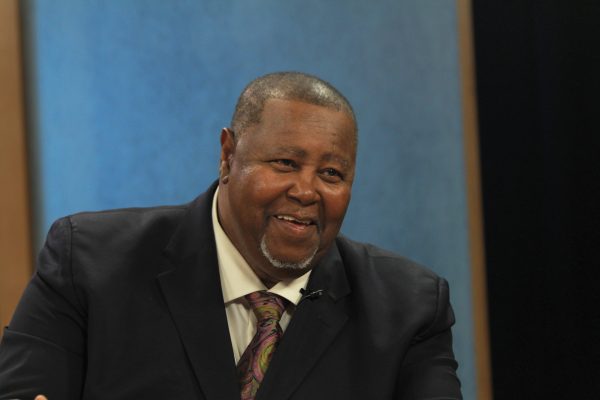
Ed Wesley is more than your average tax adviser. Wesley is also a community activist, has been for decades, and has served as the state Democratic Party’s national committeeman and as president of both the Alaska NAACP and Alaska Black Leadership Conference, among many other organizations.
Still, ask Wesley about his history as an African American leader, especially in the context of Black History Month, and he mostly defers to give credit to the contributions of others. But Wesley does tell a story that shows — from his arrival in Alaska with the Army, to working security during construction of the pipeline and later settling in Anchorage — he has a sense of civic responsibility that formed during the civil rights movement that has stayed with him over the years.
Wesley spoke with Alaska Public Media’s Casey Grove.
Wesley: In 1955, August the 28th, when Emmett Till was murdered in Money, Mississippi, African Americans from all over Mississippi gathered in Mound Bayou, Mississippi. And this is where we believe the Civil Rights Movement was launched from. So the protests had started, there was a consciousness that was taking place in this country, and I come from that area of Mound Bayou.
My family have been involved, so at 17 years old, I was out there and involved. We have been active. In 1968 I was in Grant Park along with the Chicago Eight in the protest about the Democratic party and what was going on in the country and the war. And that’s where I kind of began my activism. Guess I kind of started there. In ’77, when I relocated from Delta Junction to Anchorage, I immediately got involved here and became the youth adviser for the Anchorage branch (of the NAACP) and then became the president.
The major accomplishment, I think, during my term, we brought in the Justice Department and we fought to change the deadly force laws, which we did, from “fleeing felon” to “life in immediate danger.”
Grove: I think that’s probably something people maybe don’t know, that if the police were pursuing you they could shoot at you and be sort of justified, and that that is something that the NAACP in Alaska fought to change for everybody.
Wesley: Of course and they could fatally wound you. Say for instance you had stole something of a value over $500, which made it a felony, and you were running away. They could shoot you in your back. It would be considered justifiable homicide. And so we fought that and brought about that change here.
I think another thing that we did here under an organization that I helped organize, African American Business Council. In the ’90s, we fought to open up the banks, in terms of employment. So we had to call on the bank examiners out of San Francisco and bring them in to Anchorage, Alaska in the early ’90s. As a result of that, we put 23 African Americans to work at the National Bank of Alaska, and we had three intern managers. They stayed on became managers.
Grove: You know as a country, but also just in Alaska, where are we at with issues and problems around race and inequality in this country, and in the state, here in 2019?
Wesley: Racism still exists. It’s more subtle and more institutionalized. There’s room for a lot of improvement. And that racism exists, it exists in our politics, it exists in our daily lives. White Americans that live under the privilege of the institutionalized racism are not aware of our flight.
I get a kick out of, when I hear the rich people screaming about socialism and, “How would you dare consider anything else? Capitalism, this is the way.” The thought that goes to my mind when I hear that is my ancestors cry from 200 years of forced labor that capitalism was built on in this country. Free labor that I didn’t get to benefit from, and others that are living today are still benefiting from what took place back in that time. They don’t have a consciousness. So that’s why it’s so, so very important for us to tell our story.
Casey Grove is host of Alaska News Nightly, a general assignment reporter and an editor at Alaska Public Media. Reach him atcgrove@alaskapublic.org. Read more about Caseyhere.





